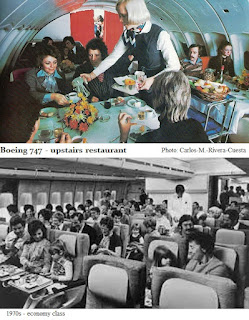Week-long holidays meant you could go a wee bit further afield: north to Blackpool or the magnificent, moody Northumbrian coast (where me Da was born, so it was a favourite). East was Great Yarmouth, and we went as far as Dorset to the south, but for some reason never went west to my beloved Wet, Windy Wales (there’s a clue there somewhere!) Been making up for it in the last couple of decades as a static caravan in mid-Wales (ten minutes from the foot of my favourite mountain, Cadair Idris) has allowed us to explore our Celtic heritage.
Several changes occurred in the leisure industry during the early twentieth century, when holidays and travel were no longer an exclusive prerogative of the rich. Thanks to the likes of Harry Warner and funfair entrepreneur Billy Butlin, there were around 200 holiday camps at different seaside locations in the UK by the outbreak of war in 1939. Post-war and into the affluent 1950s and early 1960s the holiday camp industry thrived with knobbly knees contests, human pyramids, tombola and three-legged races at the top of the agenda – inexpensive, harmless fun for a more innocent age. This was further helped by the introduction of two weeks paid holiday and a level of prosperity that gave the young, free and single spare cash for clothes, luxuries and holidays. Where trains made travel within land masses easy, the aeroplane put foreign holidays within the reach of the general public.
Thomas Cook promoted foreign holidays from the UK in the early 1950s with charter flights marking the first mass holiday packages to the likes of Corsica, Palma, Sardinia and of course the Costa Brava. Foreign travel for the masses was still rare in the mid-60s when Britannia Airways focussed on flying holiday-makers to destinations like Spain, the Canary Islands, Malta and North Africa, and Freddie Laker set up his cut-price tours business in 1966. Global travel took off in 1970 when the first Pan Am Boeing 747 jet landed at London’s Heathrow Airport – complete with a restaurant in the upstairs lounge for those who could afford first class.
By then, holiday camps were deemed a relic of the past and were shunned in favour of the package holiday – new, exciting and above all, cheap, with the promise of strong lager, wine at nine pence a bottle and "meat-filled meals" tempting people to save up for their fortnight in the Mediterranean sun. What started out as trips to idyllic fishing villages with half a dozen tiny hotels and a couple of bars turned into a full-blown industry in its own right. Whole new cities emerged across the Spanish mainland, complete with skyscrapers, swimming pools, tennis courts and endless bars and nightclubs. Not to mention the en-suite bathroom, shower and bidet.
By 1972 Spain had established itself as the favourite destination of the British abroad, and the once beautiful Benidorm was named the "Manhattan of Spain," with the highest number of skyscrapers per capita in the world. Over the next decade or so these package holidays began attracting more specific audiences – from honeymooners and families to the fun-loving Club 18-30 crowd. But the high demand inevitably led to band-wagon jumping and cut corners, with Clarkson’s package tours collapsing in 1974, leaving hundreds of British holidaymakers stranded. Skytrain undercut the big airlines from 1977 but collapsed in 1982.
 |
| Crete in the 1970s Photo: Pam Bailey |
My first foreign summer holiday involved a ferry crossing to France and a week in Brittany – like Cornwall with even more sun. My family were completely enamoured with Crepe Suzettes – our standard order always began with deux bananes for my brother and I. We were genuinely shocked to meet a couple on the ferry back who hated them, calling them “creepies.” Nowt as queer as folk!




No comments:
Post a Comment